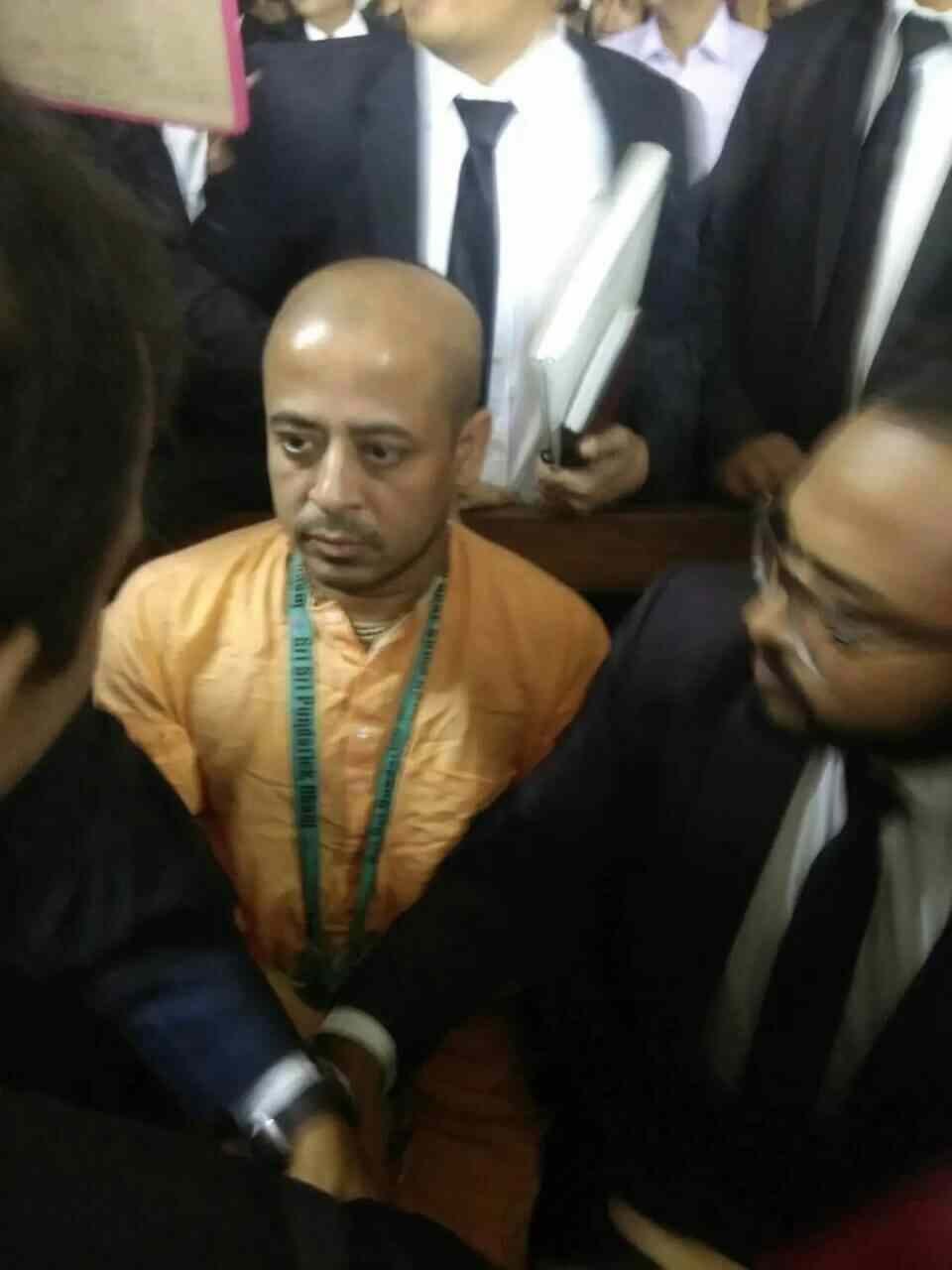The High Court has issued a rule questioning why Chinmoy Krishna Das Brahmachari, a spokesperson for the Bangladesh Sammilita Sanatani Jagran Jote and a former leader of the International Society for Krishna Consciousness (ISKCON) of Bangladesh, should not be granted bail in a sedition case. The case stems from allegations of disrespecting the national flag, which has garnered significant public and media attention.
The ruling was made by a bench comprising Justice Md Ataur Rahman and Justice Md Ali Reza on February 4. During the court proceedings, Advocate Apurba Kumar Bhattacharjee represented Chinmoy, while Additional Attorney General Mohammad Arshadur Rauf and Anik R Haque appeared on behalf of the state.
Chinmoy’s legal troubles began when he was accused of sedition in a case filed on October 31, 2022, for allegedly desecrating the national flag. Following his arrest at Hazrat Shahjalal International Airport on November 25, he was transferred to the custody of the Chattogram Metropolitan Police the next day. His initial bail plea was rejected by the Chattogram Metropolitan Sessions Judge on January 2, prompting his legal team to file a petition for bail with the High Court on January 12.
The case has been marked by a series of legal complications and public unrest. Notably, a clash occurred on November 26 during Chinmoy’s remand hearing, resulting in the tragic death of lawyer Saiful Islam Alif. This incident highlighted the tensions surrounding the case and the strong emotions it has evoked among various groups.
On December 3, the court postponed Chinmoy’s bail hearing to January 2, 2025, due to the absence of legal representation during earlier proceedings. However, on December 12, Supreme Court lawyer Rabindra Ghosh submitted an authorization letter on behalf of local lawyer Sumit Acharya, which led to the court ordering the verification of the document and the presence of the lawyer.
The latest developments in this high-profile case have drawn attention to the broader issues of freedom of expression and the legal boundaries surrounding national symbols in Bangladesh. As the High Court continues to deliberate on the matter, the outcome could have significant implications for similar cases in the future.
Chinmoy’s supporters have expressed concern over the legal proceedings, arguing that the charges against him are politically motivated and an infringement on his rights. Conversely, the state maintains that the allegations are serious and warrant thorough investigation and legal scrutiny.
As the legal battle unfolds, both sides are preparing for what could be a protracted court process. The High Court’s decision on the bail petition will be closely watched, not only for its immediate impact on Chinmoy’s situation but also for its potential ramifications on the legal landscape regarding sedition and freedom of expression in Bangladesh.
The case continues to resonate within the community, reflecting the ongoing tensions between state authority and individual rights. As the High Court navigates these complex issues, the outcome will likely influence public discourse and legal interpretations surrounding national symbols and expressions of dissent in the country.
With the next hearing scheduled, all eyes will be on the High Court as it addresses the critical questions raised by this case, which has become emblematic of the challenges facing civil liberties in Bangladesh today.








